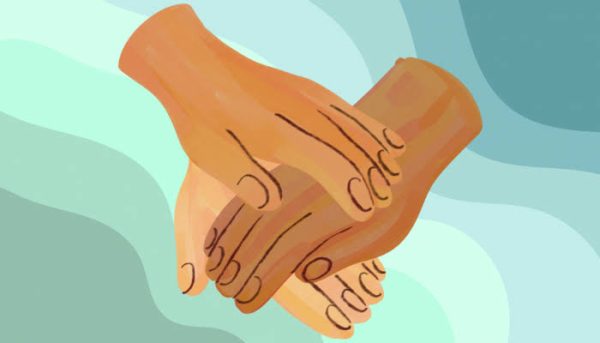
Survivors’ Rights in Domestic Violence
Survivors’ rights in domestic violence are fundamental pillars of empowerment and protection for those who have endured abuse.
Domestic violence is a pervasive issue affecting millions of individuals worldwide. It knows no boundaries of age, gender, race, or socioeconomic status. However, amidst the darkness of abuse, there is a glimmer of hope: survivors’ rights. These rights are crucial in providing support, protection, and justice to those who have endured the trauma of domestic violence.
Survivors’ Rights
Survivors’ rights encompass a range of legal, social, and psychological protections designed to empower those who have experienced domestic violence. These rights are grounded in the fundamental principles of human dignity, safety, and justice. They serve as a beacon of hope for survivors, guiding them through the difficult journey of healing and recovery.
Legal Protections
One of the most significant aspects of survivors’ rights is legal protection. Laws and policies vary from country to country, but many jurisdictions have enacted legislation specifically aimed at addressing domestic violence. These laws typically include provisions for restraining orders, which prohibit the abuser from contacting or approaching the survivor. Additionally, survivors may have the right to pursue criminal charges against their abuser and seek compensation for any damages incurred.
Access to Support Services
Survivors’ rights also include access to a wide range of support services. These services may include shelters, counseling, legal aid, and advocacy groups. These resources play a crucial role in helping survivors rebuild their lives and regain their independence. From providing a safe place to stay to offering emotional support and practical assistance, these organizations are lifelines for many survivors.
Financial Independence
Financial independence is another important aspect of survivors’ rights. Many survivors find themselves economically dependent on their abusers, making it difficult to leave abusive situations. However, survivors have the right to access resources and support to help them achieve financial independence. This may include assistance with finding employment, housing assistance, and access to financial counseling and education.
Empowerment and Advocacy
At the heart of survivors’ rights is empowerment and advocacy. Survivors have the right to be heard, believed, and supported. They have the right to make their own choices and decisions about their lives. Advocates play a crucial role in amplifying survivors’ voices, raising awareness about domestic violence, and pushing for policy changes to better protect survivors and hold abusers accountable.
Challenges and Progress
While significant progress has been made in recognizing and protecting survivors’ rights, there are still many challenges ahead. Stigma, fear, and lack of awareness continue to prevent many survivors from seeking help. Additionally, systemic barriers, such as inadequate funding for support services and a lack of culturally competent care, can further marginalize survivors, particularly those from marginalized communities.
However, there is hope on the horizon. As awareness of domestic violence grows and more survivors speak out about their experiences, there is momentum for change. By advocating for survivors’ rights, we can create a world where everyone has the opportunity to live free from violence and fear.
Survivors’ rights are essential for empowering those who have experienced domestic violence. From legal protections to access to support services, these rights play a crucial role in helping survivors rebuild their lives and reclaim their autonomy. By promoting awareness, advocating for policy changes, and providing support to survivors, we can work together to create a future where domestic violence is no longer tolerated, and all survivors are given the respect, dignity, and justice they deserve.
Frequently Asked Questions About Survivors’ Rights in Domestic Violence
1. What are survivors’ rights in domestic violence?
Survivors’ rights encompass a range of legal, social, and psychological protections designed to empower those who have experienced domestic violence. These rights include access to legal protection, support services, financial independence, and empowerment through advocacy.
2. What legal protections are available for survivors of domestic violence?
Legal protections may include restraining orders, which prohibit the abuser from contacting or approaching the survivor, as well as the ability to pursue criminal charges against the abuser and seek compensation for damages incurred.
3. What support services are available for survivors of domestic violence?
Survivors have access to a variety of support services, including shelters, counseling, legal aid, advocacy groups, and resources for financial independence. These services provide essential assistance in helping survivors rebuild their lives and regain their independence.
4. How can survivors achieve financial independence?
Survivors have the right to access resources and support to help them achieve financial independence. This may include assistance with finding employment, housing support, financial counseling, and education.
5. What role do advocates play in survivors’ rights?
Advocates play a crucial role in amplifying survivors’ voices, raising awareness about domestic violence, and pushing for policy changes to better protect survivors and hold abusers accountable. They provide support, guidance, and resources to survivors throughout their journey to healing and recovery.
6. What are some challenges facing survivors of domestic violence?
Survivors may face stigma, fear, and lack of awareness, which can prevent them from seeking help. Additionally, systemic barriers such as inadequate funding for support services and lack of culturally competent care can further marginalize survivors, particularly those from marginalized communities.
7. How can I support survivors of domestic violence?
You can support survivors by believing them, listening without judgment, and offering them resources and support. You can also advocate for policy changes to better protect survivors and hold abusers accountable, and support organizations that provide services to survivors.
8. Where can I find help if I am experiencing domestic violence?
If you are experiencing domestic violence, you can reach out to local domestic violence hotlines, shelters, counseling services, or advocacy organizations for support and assistance. You can also contact law enforcement for immediate help and safety planning. Remember, you are not alone, and help is available.

Leave a Reply